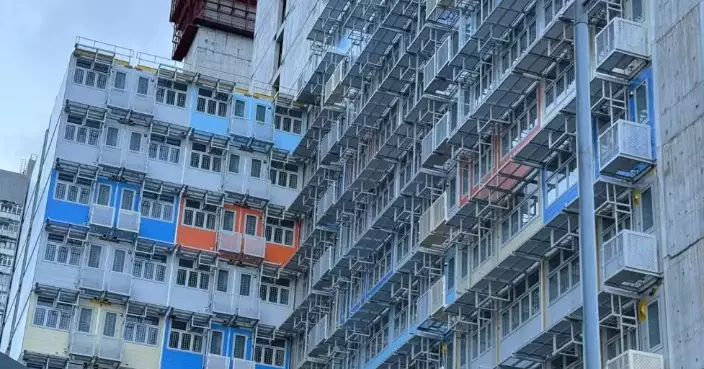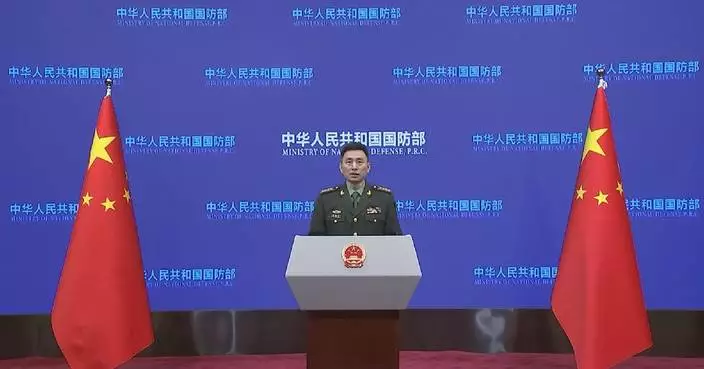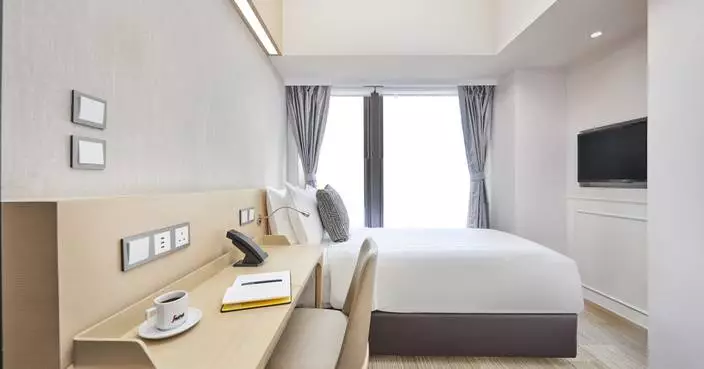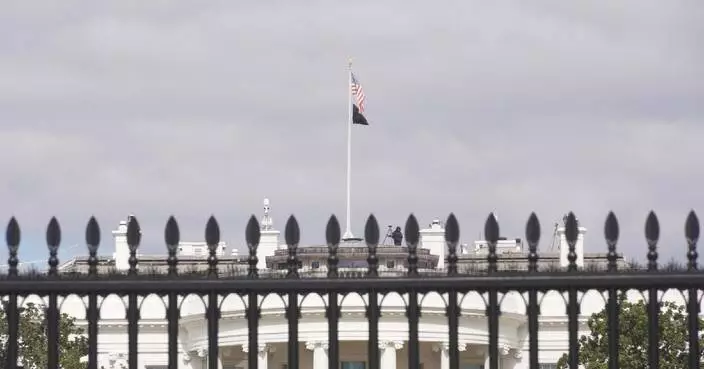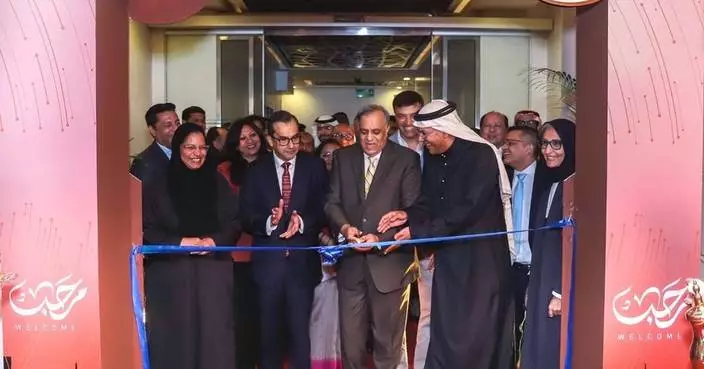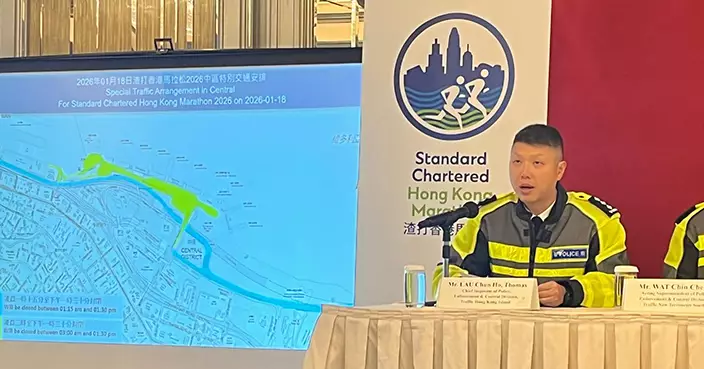Feature · News

China to promote innovative development of foreign trade
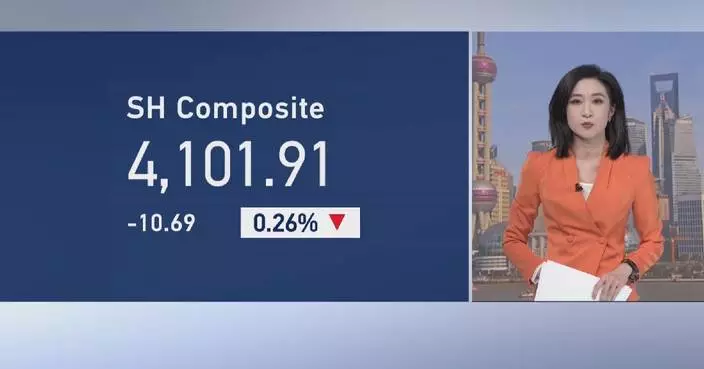
Chinese stock markets edge lower Friday amid absence of major market-moving catalysts: analyst
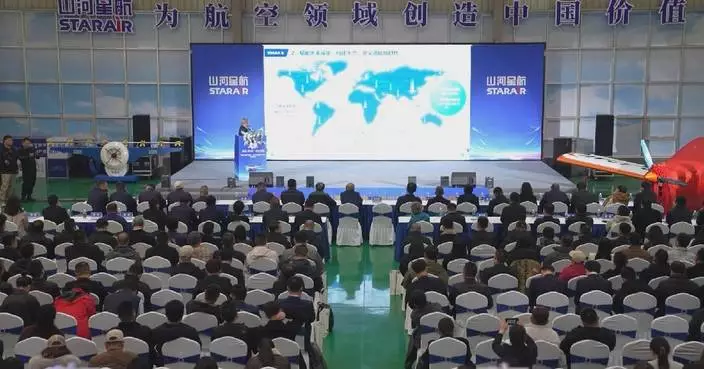
China's first light sport aircraft with independently-developed avionics, engine delivered

Chinese premier chairs meeting on promoting service consumption

Airbus forecasts China to lead global aviation services market by 2044

Iranian security forces disperse anti-government demonstrators

China to strengthen recycling management of used power batteries from NEVs

Ukraine’s battered power grid faces unprecedented challenge, energy minister says
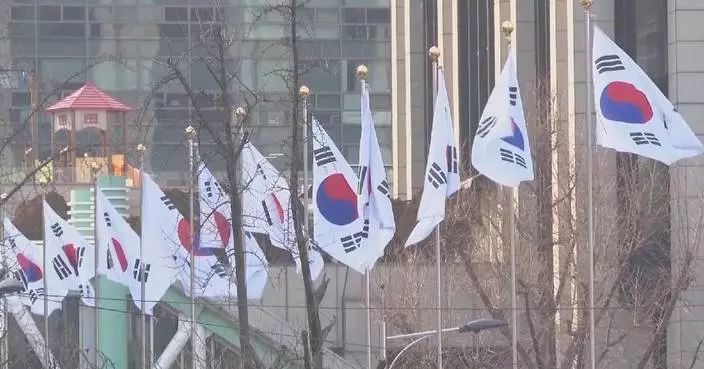
ROK ex-president Yoon sentenced to 5 years in prison on arrest obstruction charges
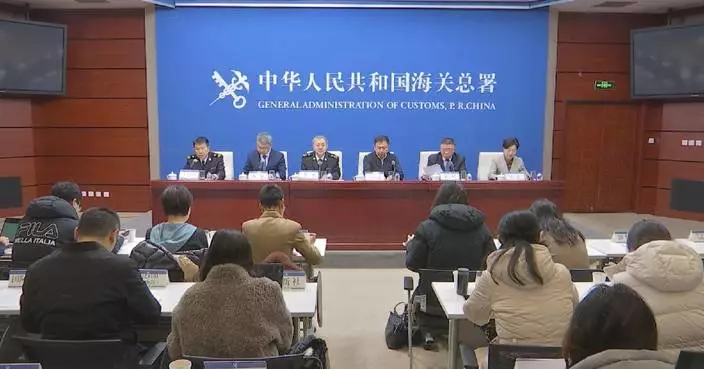
China promotes 25 measures nationwide to facilitate cross-border trade

HKMA Warns Public About Recent Banking Scams and Fraudulent Websites

Two Passengers Imprisoned for Smuggling Duty-Not-Paid Cigarettes at Lo Wu Control Point
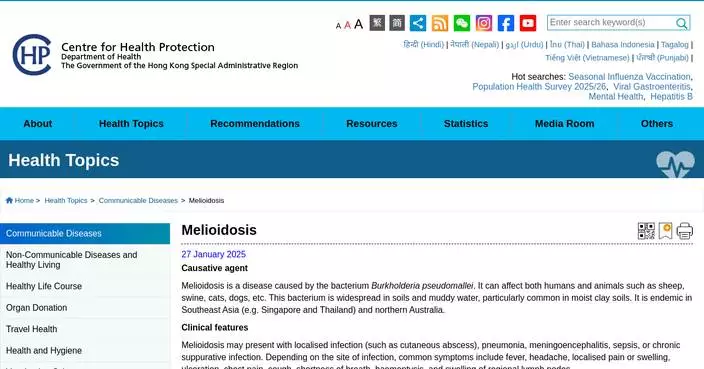
New Melioidosis Case in Hong Kong: Public Urged to Maintain Hygiene After Recent Storms
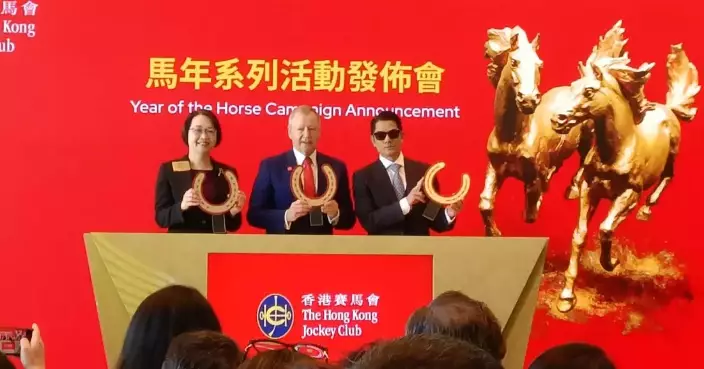
The Chinese New Year Fireworks Display, Solely Sponsored by The Hong Kong Jockey Club, will Shine on the Victoria Harbour on February 18th
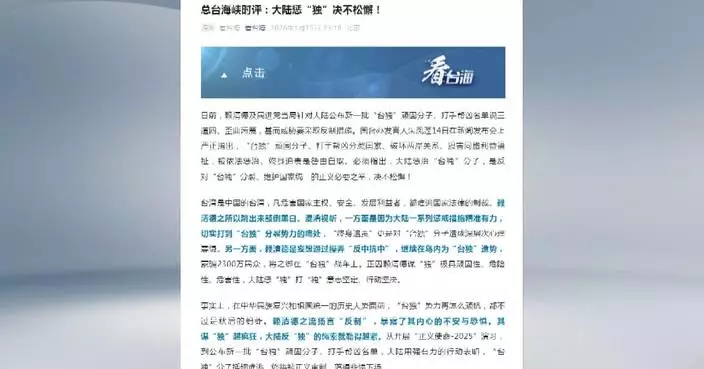
Mainland never slackens efforts to punish Taiwan separatists: commentary
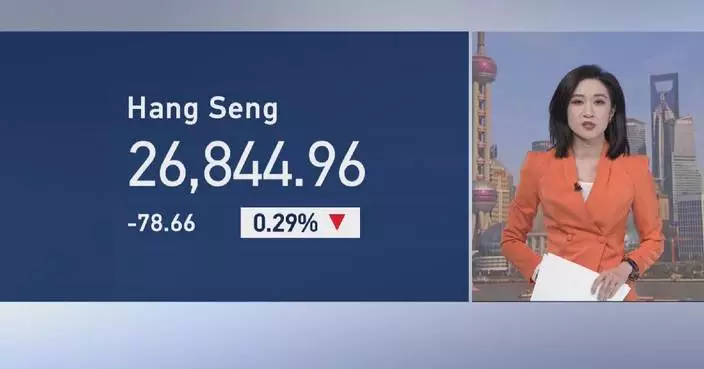
Hong Kong stock markets edge lower as Tokyo stocks decline amid policy uncertainty: analyst
China to strengthen recycling management of used power batteries from NEVs

Ukraine’s battered power grid faces unprecedented challenge, energy minister says
ROK ex-president Yoon sentenced to 5 years in prison on arrest obstruction charges
China promotes 25 measures nationwide to facilitate cross-border trade
China to promote innovative development of foreign trade
Chinese stock markets edge lower Friday amid absence of major market-moving catalysts: analyst
China's first light sport aircraft with independently-developed avionics, engine delivered
Chinese premier chairs meeting on promoting service consumption
Airbus forecasts China to lead global aviation services market by 2044
Iranian security forces disperse anti-government demonstrators

HKMA Warns Public About Recent Banking Scams and Fraudulent Websites

Two Passengers Imprisoned for Smuggling Duty-Not-Paid Cigarettes at Lo Wu Control Point

New Melioidosis Case in Hong Kong: Public Urged to Maintain Hygiene After Recent Storms

The Chinese New Year Fireworks Display, Solely Sponsored by The Hong Kong Jockey Club, will Shine on the Victoria Harbour on February 18th
Mainland never slackens efforts to punish Taiwan separatists: commentary
Hong Kong stock markets edge lower as Tokyo stocks decline amid policy uncertainty: analyst
Feature·Bloggers

【Deep Throat】Trump's Latest Iran Tariff Bluff: China Sees Right Through It

【Ariel】Jimmy Lai’s “Solitary” Twist: Judges Say He Asked For It

【What Say You?】Accomplice Witness Chen Zihao: Family Stalked, Fears Black Bloc Revenge After Release

【Deep Blue】International Laws? You Kidding Me?

【Bastille Commentary】Chicken-hearted Conservatives: Sanctioning Hong Kong Judges While Trump Runs Wild

【What Say You?】Trump’s “Maduro Grab” Gets a Glossy Spin by the Usual Suspects

White House names some leaders with roles in next steps in Gaza, while Palestinian committee meets
- Trump quietly appoints 4 members to commission that will review his White House ballroom plan
- The Latest: Trump thanks Iran for halting executions as allies discourage US from striking
- Virginia lawmakers back redrawing congressional maps, paving the way for a voter referendum
- Man found guilty of involuntary manslaughter in 2021 death of San Francisco Thai grandfather
- No. 1 Indiana looking for a storybook ending to complete this real-life Hollywood script at Miami
- Mother of Elon Musk's child sues his AI company over sexual deepfake images created by Grok
- Drunk driver gets 24 years to life in prison for killing 4 people at July 4 barbecue in NYC park
- Chinese EVs are making inroads in North America. That worries industry experts
- Trump isn't waiting for future generations to name things after him. It's happening now
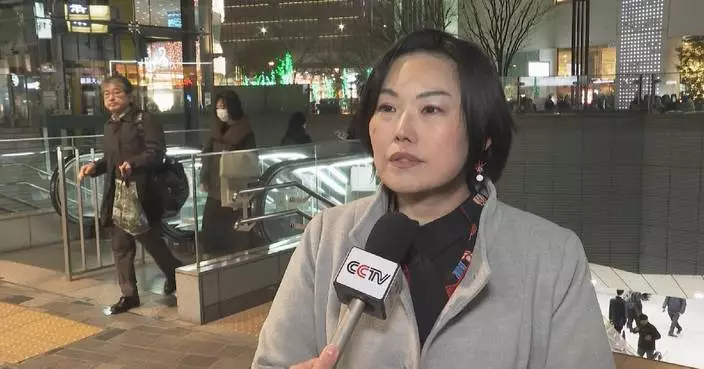
Japanese lawmaker criticizes nuclear weapons remarks as threat to regional security
- Chinese companies seek greater role in Gulf states' energy transition
- Order returns to normal at Colombia-Venezuela border
- Shenzhou-20 astronauts share experiences after safely returning from debris incident
- Canada PM Carney says China trip "historic and productive"
- German economy grows 0.2 pct in 2025, ending two years of contraction
- China launches coking coal options
- Hong Kong stocks close lower
- Cave-training enables astronauts to better endure extreme environments
- China to further deepen defense, security cooperation with Laos: spokesman

No sign of new protests in Iran as a hard-line cleric calls for executions and threatens Trump
- ChatGPT's free ride is ending: Here's what OpenAI plans for advertising on the chatbot
- Colman Domingo, Liam Hemsworth and Noah Schnapp pack Ralph Lauren's Milan Fashion Week show
- Republicans vouch for Fed chair, creating a rare schism with Trump
- Supreme Court will hear appeal by maker of popular Roundup weedkiller to block thousands of lawsuits
- Brazil’s Lula hails historic EU-Mercosur deal ahead of no-show at its signing
- The AI Recording Pen That Turned Heads at CES Is Finally for Sale
- Trump says he wants to keep Hassett in White House, clouding Fed chair selection
- Takeaways from the AP's report on turmoil surrounding the FDA's new fast-track drug program
- Legal questions swirl around FDA's new expedited drug program, including who should sign off

Supreme Court will decide on use of warrants that collect the location history of cellphone users
- Measles cases jump again in South Carolina, rising to more than 550
- US flu activity fell for a second week. But experts worry the season is far from over
- Nurses restart contract talks with another major hospital system on 5th day of strike
- She set a photo afire, lit a cigarette — and became a symbol of resistance for Iran protesters
- What you need to know about Grok and the controversies surrounding it
- At Detroit auto show, spotlight dims for EVs
- Kaiser affiliates will pay $556M to settle a lawsuit alleging Medicare fraud
- What to know about UK legal changes aiming to regulate AI-generated nude images
- Ailing astronaut returns to Earth early in NASA's first medical evacuation

NFL sees increased viewership for wild-card round, eyes more for divisional games
- Tears and anger in Europe as exiled Iranians protest government crackdown
- Julio Iglesias denies sexual abuse allegations, calling them 'absolutely untrue'
- Kathleen Kennedy, steward of 'Star Wars,' steps down from Lucasfilm
- Former Universal chair David Linde named CEO of Sundance Institute
- The new BTS album title and what to know about the K-pop band’s comeback
- Min Jin Lee's 'Pachinko' follow-up, 'American Hagwon,' will explore Korean education obsession
- Actor Timothy Busfield ordered held without bond in New Mexico child sex abuse case
- Royal Opera sees generation change as Jakub Hrůša and Speranza Scappucci come in
- Julio Iglesias accused of sexual assault in Caribbean as Spanish prosecutors study the allegations

Chargers have cap space to be aggressive in retaining pass rush trio of Tuipulotu, Mack and Oweh
- Texans' top-ranked defense looks to slow down Drake Maye and the Patriots in divisional matchup
- Golden Knights' Marner booed at home by Maple Leafs fans, setting stage for hostile trip to Toronto
- USWNT's Rose Lavelle and Lilly Reale earn US Soccer honors as best players of 2025
- Eintracht Frankfurt and Werder Bremen share six-goal thriller
- Rangers GM Chris Drury shared letter with fans saying the franchise feels their disappointment
- Petrokina stuns by retaining European figure skating title after Achilles tendon surgery
- Dembélé destroys Lille and lifts PSG back on top of Ligue 1
- Bo Bichette and the New York Mets agree to a $126 million, 3-year contract, AP source says
- Flag football becomes NCAA emerging sport for women, Nebraska announces varsity program

HKFI Cocktail Party 2026: Celebrating Unity and Growth in Hong Kong's Insurance Sector
- Two men sentenced for unauthorized transfer of sports facility bookings, facing 80 hours of community service.
- Labour Department Launches Good Employer Charter 2026 to Promote Work-Life Balance and Family-Friendly Practices.
- Hong Kong Launches Port Community System for Smarter, Integrated Maritime Operations
- Government Proposes Bill to Enhance Medical Council's Complaint Handling in Hong Kong
- Sick 70-Year-Old In Custody Dies After Deteriorating Condition in Public Hospital
- Health Authorities Warn of Rising Dengue and Chikungunya Fever Risks Amid Favorable Mosquito Breeding Conditions
- Anti-Illegal Worker Operations in Hong Kong Result in Eight Arrests and Ongoing Investigations
- Hong Kong Customs dismantles drug lab, seizes $10 million in etomidate and cocaine, arrests two suspects.
- FEHD Reports Low Aedes Albopictus Mosquito Levels in January Gravidtrap Survey
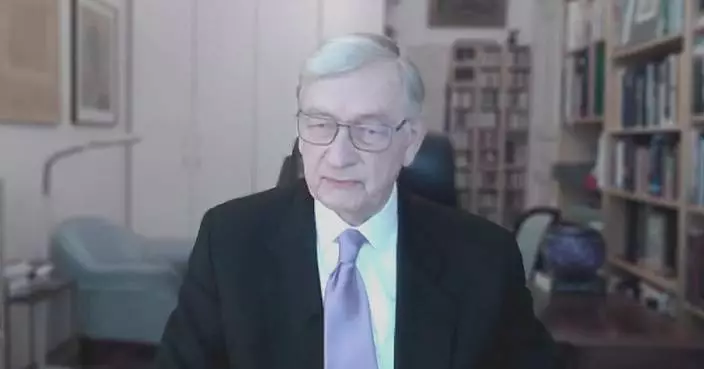
Former Slovenian president urges European unity on Greenland
- Iran diplomat claims unrest under control, blames US-Israel plot
- China's giant radio telescope observations unravel origin of cosmic enigmatic flashes
- China's forex transactions hit record 42.6 trln US dollars in 2025
- China's export control on dual-use items to Japan legitimate, reasonable: commentary
- Türkiye opposes military operation against Iran, says FM
- AIIB grants 70 bln USD funding in 10 years
- UN urges "maximum restraint" on Iran situation
- China, Canada should deepen cooperation to unleash potential of complementary economies: expert
- Xi receives credentials of new ambassadors to China
Category · News

White House names some leaders with roles in next steps in Gaza, while Palestinian committee meets

Trump quietly appoints 4 members to commission that will review his White House ballroom plan
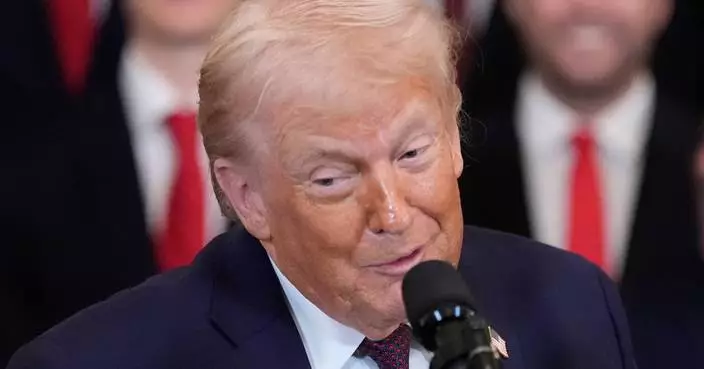
The Latest: Trump thanks Iran for halting executions as allies discourage US from striking
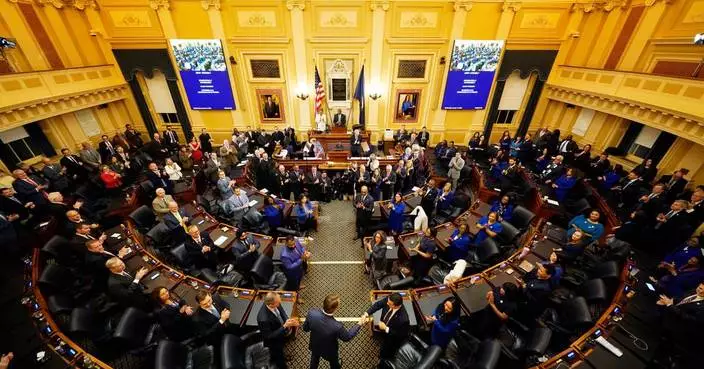
Virginia lawmakers back redrawing congressional maps, paving the way for a voter referendum

Man found guilty of involuntary manslaughter in 2021 death of San Francisco Thai grandfather

Chargers have cap space to be aggressive in retaining pass rush trio of Tuipulotu, Mack and Oweh

NFL sees increased viewership for wild-card round, eyes more for divisional games

Texans' top-ranked defense looks to slow down Drake Maye and the Patriots in divisional matchup

Golden Knights' Marner booed at home by Maple Leafs fans, setting stage for hostile trip to Toronto

No. 1 Indiana looking for a storybook ending to complete this real-life Hollywood script at Miami

Mother of Elon Musk's child sues his AI company over sexual deepfake images created by Grok

Drunk driver gets 24 years to life in prison for killing 4 people at July 4 barbecue in NYC park

USWNT's Rose Lavelle and Lilly Reale earn US Soccer honors as best players of 2025

Chinese EVs are making inroads in North America. That worries industry experts

Eintracht Frankfurt and Werder Bremen share six-goal thriller

Trump isn't waiting for future generations to name things after him. It's happening now

The Education Department is opening fewer sexual violence investigations as Trump dismantles it

Rangers GM Chris Drury shared letter with fans saying the franchise feels their disappointment

National Guard troops to stay on Washington, DC, streets through 2026

Trump eases threat to send troops to Minnesota. Liberian man is released after battering-ram arrest

No sign of new protests in Iran as a hard-line cleric calls for executions and threatens Trump

Judge allows members of Zizians group to work together on defense ahead of Maryland trial

Defendant in Charlie Kirk's killing asks judge to disqualify prosecutors

Petrokina stuns by retaining European figure skating title after Achilles tendon surgery

ChatGPT's free ride is ending: Here's what OpenAI plans for advertising on the chatbot
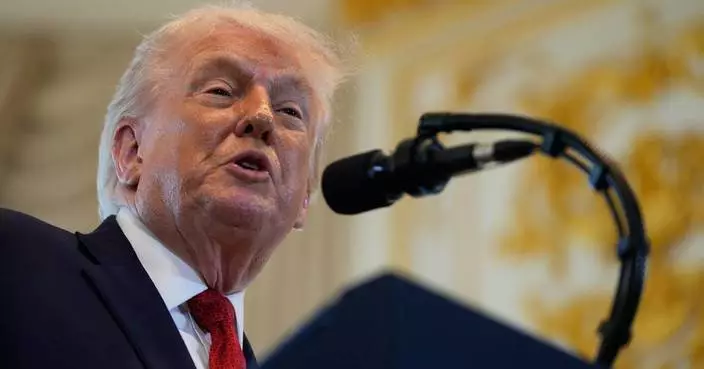
Trump offers to restart US mediation in Nile River dispute between Egypt and Ethiopia

Dembélé destroys Lille and lifts PSG back on top of Ligue 1

Bo Bichette and the New York Mets agree to a $126 million, 3-year contract, AP source says

Bloom: Celebrating AHF’s Activism Through Augmented Reality and Art

Colman Domingo, Liam Hemsworth and Noah Schnapp pack Ralph Lauren's Milan Fashion Week show

Flag football becomes NCAA emerging sport for women, Nebraska announces varsity program

Pisa scores rare home goal to salvage draw with Atalanta

Venezuelan opposition leader is confident about return of democracy but says little of her plans

Morocco is hosting yet another Women’s Africa Cup. Here are the groups

ACC more than survived, it thrived. Miami in the College Football Playoff final is proof

Kurdish-led forces to withdraw from contested area in Syria

Republicans vouch for Fed chair, creating a rare schism with Trump
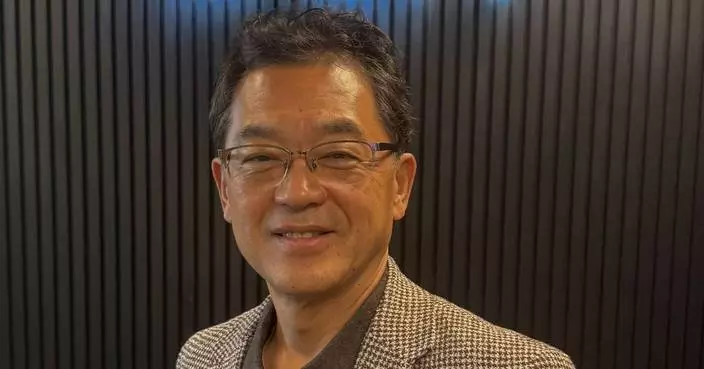
C&Y Engineering Mitigates Structural and Permitting Risks for Korean Companies Expanding Manufacturing Operations in the United States

Japanese lawmaker criticizes nuclear weapons remarks as threat to regional security
Chinese companies seek greater role in Gulf states' energy transition

California protester left blind in one eye is among string of violent run-ins with federal agents
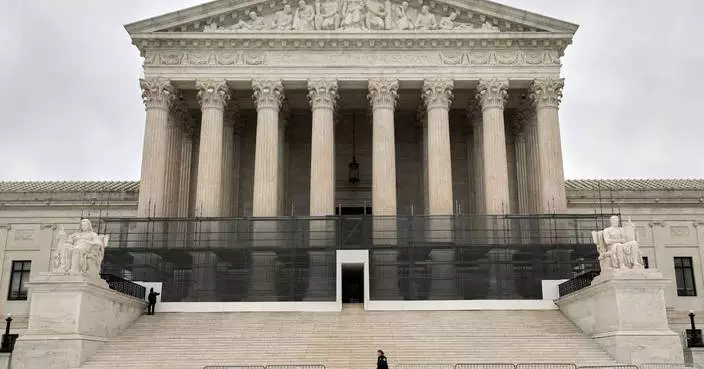
Supreme Court will hear appeal by maker of popular Roundup weedkiller to block thousands of lawsuits

Supreme Court will decide on use of warrants that collect the location history of cellphone users

Spark® Green Apple Candy Makes Its New Year Debut

More than 100 dead in torrential rains and floods across southern Africa

Warming shelters for the homeless are open as Florida experiences its coldest weather this winter

Trump to pardon ex-Puerto Rico governor Vázquez in campaign finance case, official says

Brazil’s Lula hails historic EU-Mercosur deal ahead of no-show at its signing

Golden Gate Global Crosses $1 Billion in EB-5 Capital Raise, Strengthening Its Position as a Top U.S. Regional Center
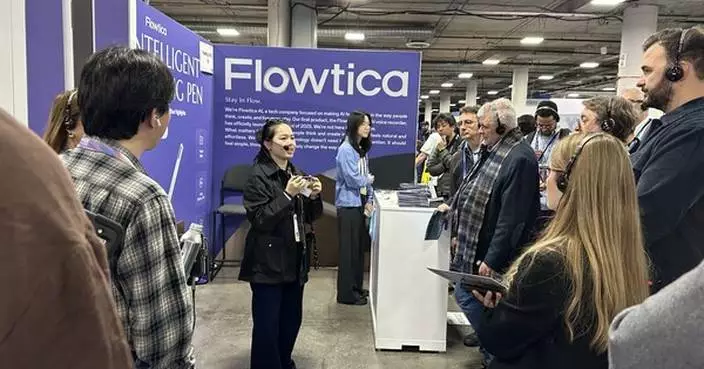
The AI Recording Pen That Turned Heads at CES Is Finally for Sale

Chargers' Jesse Minter and Rams' Nate Scheelhaase interview for Browns head coach position

Trump says he wants to keep Hassett in White House, clouding Fed chair selection

Hurricanes acquire defenseman Kyle Masters and a 4th-round pick from Sharks for 5th-round pick

Ex-husband indicted by grand jury in slaying of couple found in their Ohio home

Carrick becomes the sixth Man United boss to face Guardiola

Uganda's president leads in tense election marred by internet shutdown and voting interference

J.T. Realmuto agrees to $45 million, 3-year deal to stay with Phillies, AP source says

Anaheim Ducks acquire tough forward Jeffrey Viel from Boston Bruins in trade for 4th-round pick
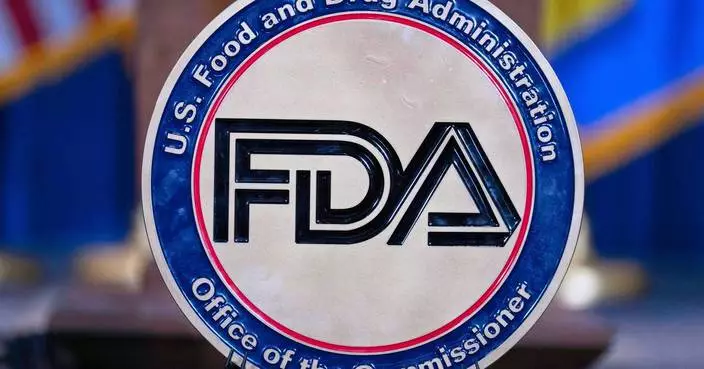
Takeaways from the AP's report on turmoil surrounding the FDA's new fast-track drug program
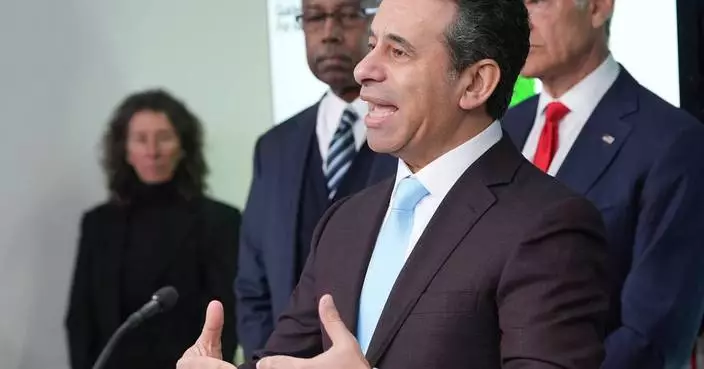
Legal questions swirl around FDA's new expedited drug program, including who should sign off

CIA director meets Venezuela's acting president in Caracas

BrightSky Residential Appoints Donny Fineberg to Lead Capital Markets Strategy
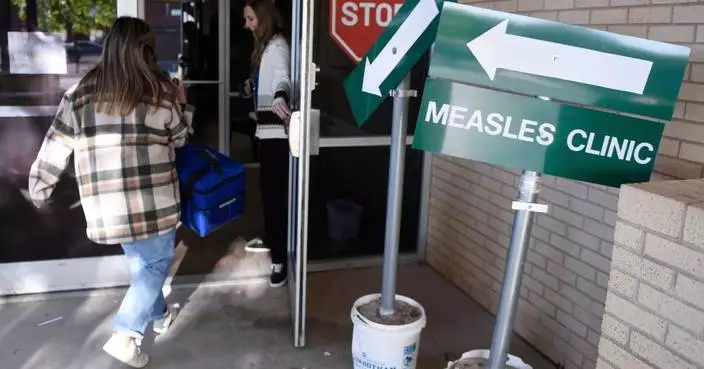
Measles cases jump again in South Carolina, rising to more than 550

Trump thanks Iran for not following through on executions of political prisoners

NASCAR community mourns driver Greg Biffle, 6 others killed in plane crash at memorial service

CFP championship game prediction: Indiana will complete perfect season with its 1st national title
Order returns to normal at Colombia-Venezuela border

Texans' fearsome foursome fuels Houston's pass rush

Trump says he may punish countries with tariffs if they don’t back the US controlling Greenland

Surging Buffalo Sabres starting to bring back memories of the franchise's success of 20 years ago

UK police chief who recommended ban of soccer fans of Israeli team Maccabi retires
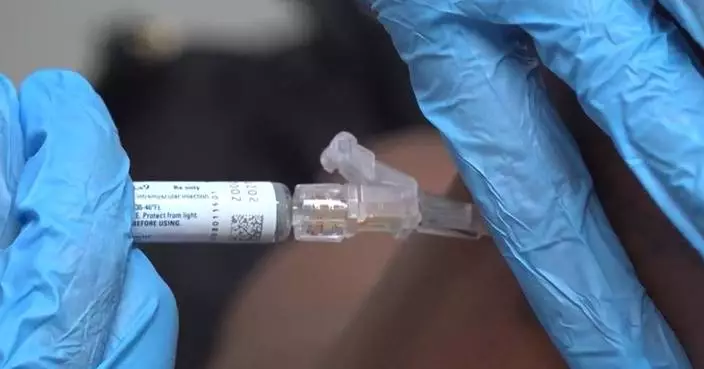
US flu activity fell for a second week. But experts worry the season is far from over
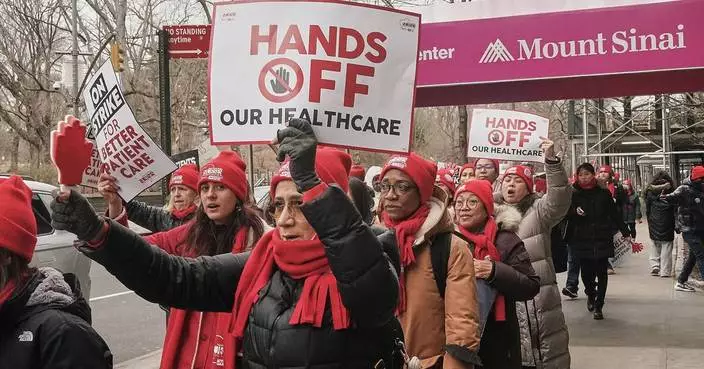
Nurses restart contract talks with another major hospital system on 5th day of strike

Tesla granted more time in US investigation into its self-driving tech

Tears and anger in Europe as exiled Iranians protest government crackdown

LISTEN: All-Pro QB Matthew Stafford credits teammates, Rams coach Sean McVay for his success

Cuba launches mass demonstration to decry US attack on Venezuela and demand Maduro's release

Kurdish separatist group claims to have mounted ‘armed operations' in Iran to defend protesters

Josh Lowe to Angels, Gavin Lux to Rays and Brock Burke to Reds in 3-team trade

Why Thailand's deadly construction accidents are sparking outrage and scrutiny
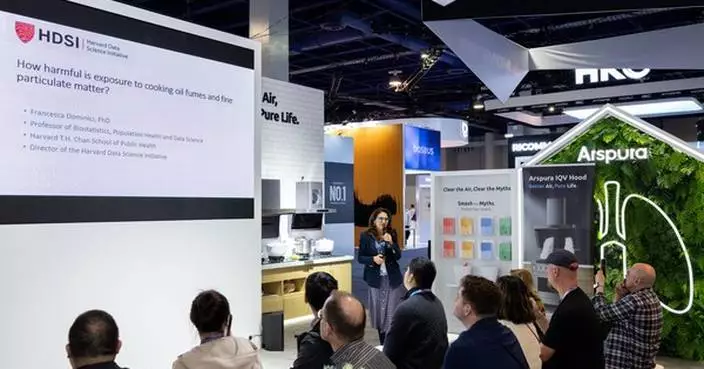
Arspura's CES 2026 Showcase Advances Next-Gen Ventilation for a Healthier Kitchen

Al-Attiyah and Brabec dominate penultimate stage to edge closer to Dakar Rally victories
Shenzhou-20 astronauts share experiences after safely returning from debris incident

How the Trump administration erased centuries of Justice Department experience









